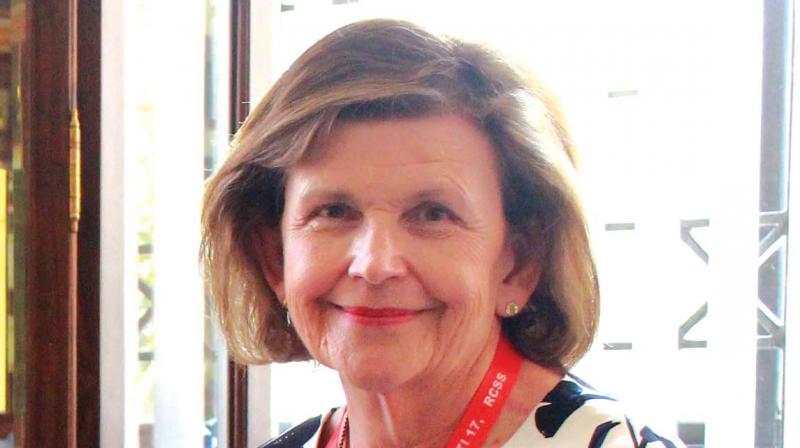Oz shares Indian stigma on mental illness: Professor Lynette Joubert
Professor Lynette said depression has to be classified to mild, moderate and severe.

Kochi: Professor Lynette Joubert who is a senior lecturer in social sciences at the University of Melbourne and honorary professor at University France-Comte, France, and is also trained as a clinical psychologist and social worker, says that the skill envisaged by the profession of social work has a caring component in it which is assimilated through field work, listening, non-verbal communication and skill in building relationships .
Attending the DYUTI (Development Yearnings for a United and Transformed India) conference series organized by the Rajagiri College of Social Sciences in Kochi, she said that there is lot of similarities with the curriculum followed for the social work education in India and Australia. “The caring component of the social worker transcends theory and technology and it does not differ from Australia to India,” she said.
Professor Lynette said depression has to be classified to mild, moderate and severe for providing better mental health intervention. “Stigma related to mental illness is present in Australia like India. Mental health team involves mental health professionals and the mental health social worker is a member in it,” she added. Professor Lynette, who is also honorary associate professor at the Peter McCollum Cancer Centre, said internationally, the number of ageing population is on the rise and India is also about to witness it within the next four decades.
“One of the major problems faced by the elderly across the globe is isolation. This gradually leads to unhappiness, depression, and suicidal ideation. Towards the end of the life what matters is the strings of relationship. Social work profession mandatorily teaches its professionals the emotional quality of care called empathy leading to sustaining the relationship. It gives due importance for social network which is the interface at which the person and community regularly meet. Social workers in India need to undertake an exercise to identify the gravity of the psychosocial needs faced by the elderly as we do back in Australia,” she said.

